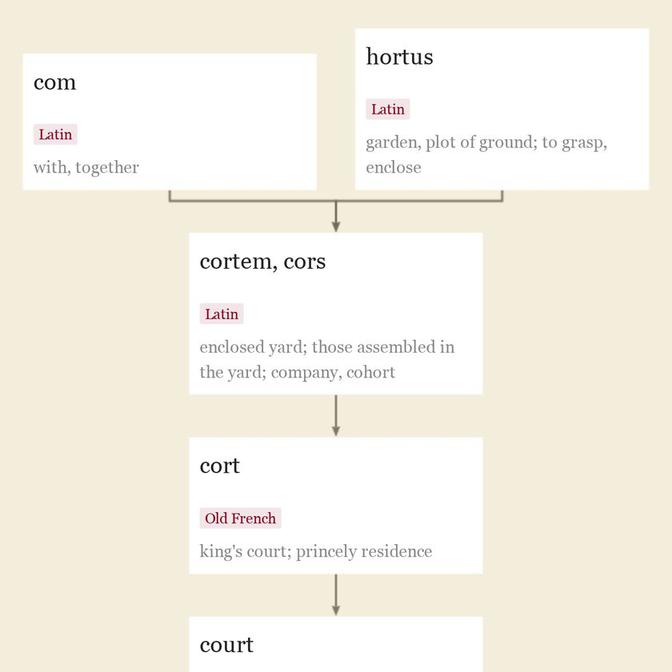court-marshal n.
"
Entries linking to court-marshal

late 12c., "
Both senses of the Latin word emerged in English. From the purely physical sense come "
From the notion of "
mid-13c., "
This is from a Proto-Germanic compound of *markhaz "
From early 14c. as "
updated on April 19, 2018